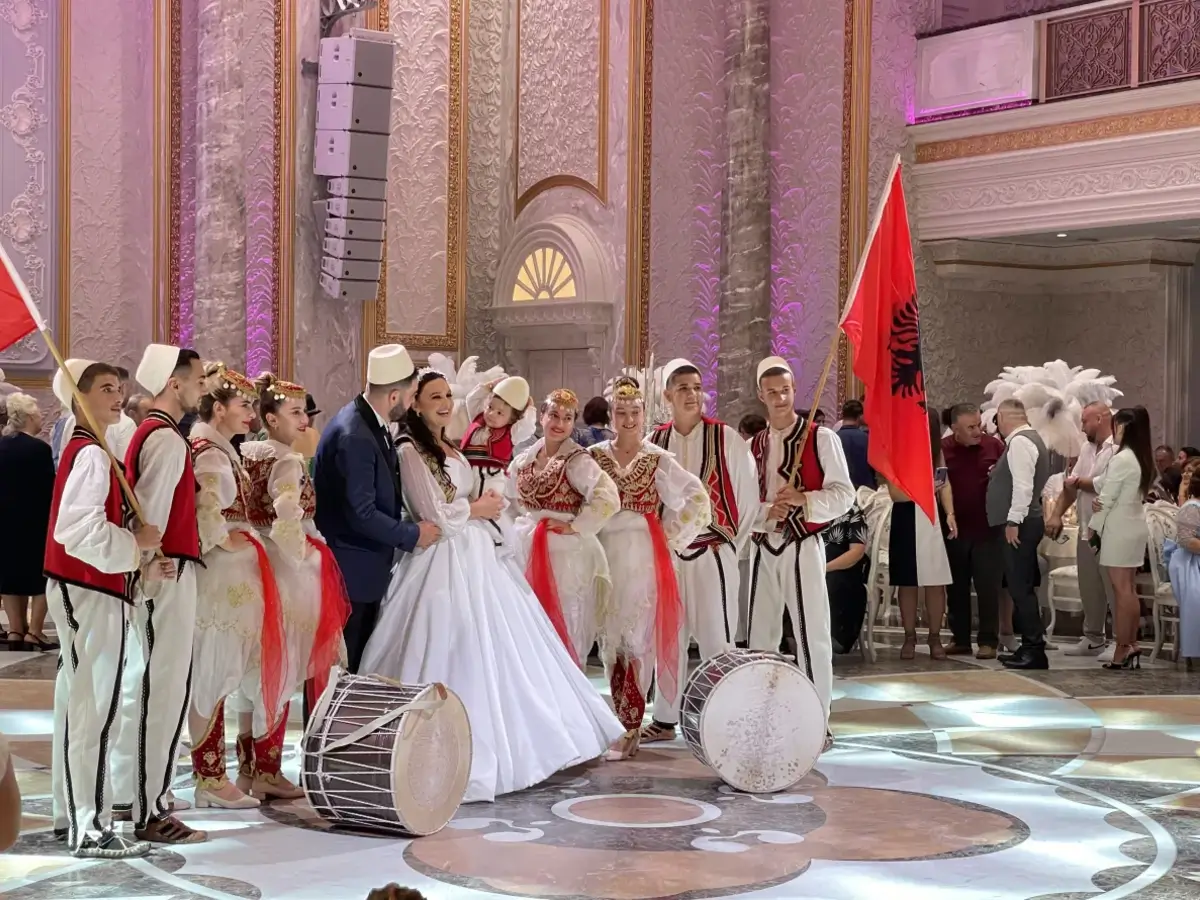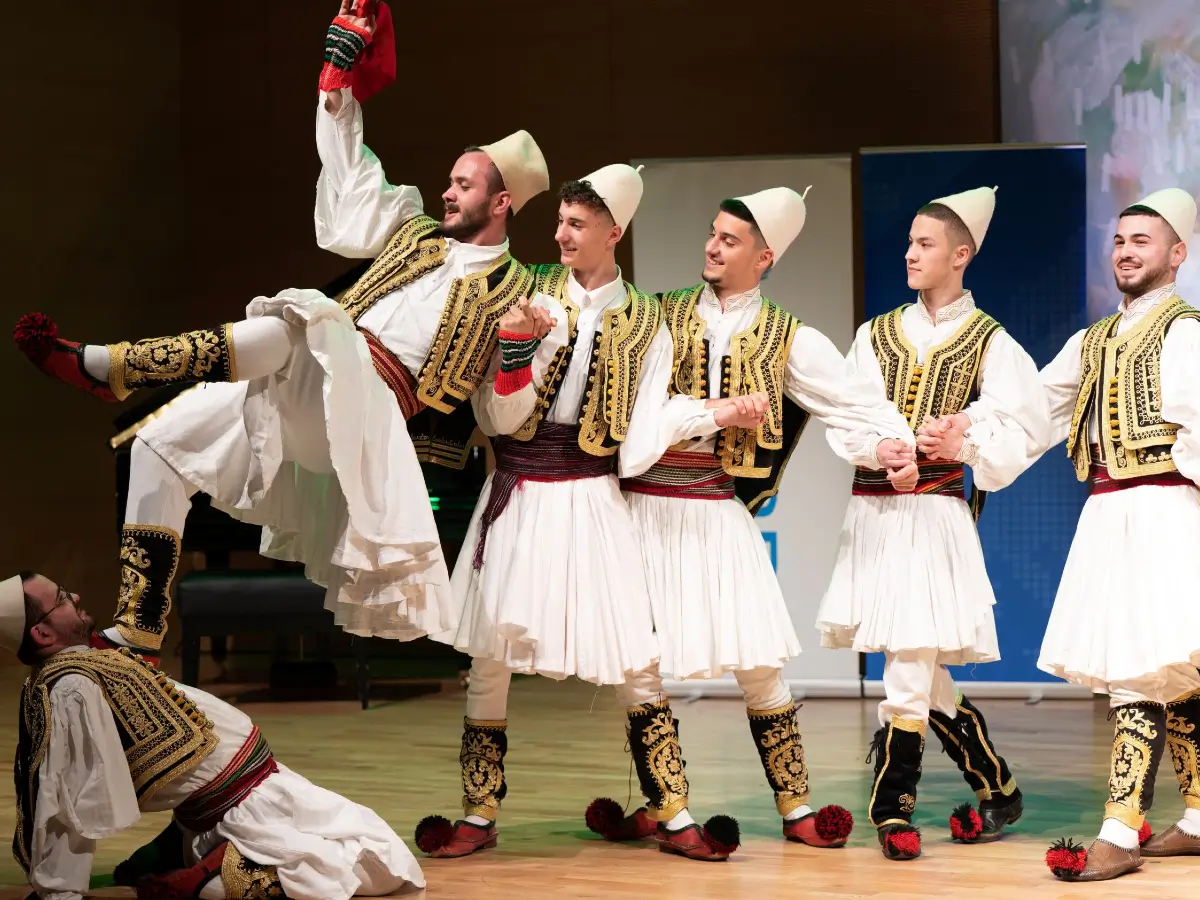In Albania, weddings are more than ceremonies — they are public displays of unity, heritage, and family pride. While modern weddings may include DJs, dresses, and cake-cutting, traditional Albanian weddings continue to follow deeply rooted customs that reflect centuries of culture and regional identity.
The core of an Albanian wedding is not just the couple, but the two families coming together. Honor, reputation, and hospitality all play key roles. Preparations can span weeks, and the celebrations often last for several days.

Traditional structure of an Albanian wedding
The customs vary slightly between regions, but most traditional weddings follow a sequence that includes symbolic rituals, community involvement, and strong family participation. The focus is often on respecting elders, preserving family values, and honoring guests with generosity.
Common elements of a traditional Albanian wedding include:
-
The marriage proposal — usually formal, often involving a meeting between families where approval is given and symbolic gifts are exchanged
-
Engagement period — traditionally accompanied by celebrations, gift-giving, and preparations for the wedding
-
Bride preparation — including ceremonial bathing, dressing with family heirlooms or traditional clothing, and farewells to her family
-
Bringing the bride to the groom’s house — a major event where the bride is escorted with music, dancing, and symbolic rituals
-
The wedding day — filled with live music, dancing, traditional food, and rituals like gifting, blessing, and toasting
-
Post-wedding rituals — such as the bride visiting her family again after the wedding, or multi-day celebrations continuing at the groom’s home
The celebration usually includes live folk music, traditional dances like the valle, and symbolic foods such as roasted lamb, bread, and baklava.
Regional and religious variations
Wedding traditions vary between northern and southern Albania, as well as between Muslim, Orthodox, and Catholic communities. In the north, weddings tend to include more warrior-style symbolism — such as rifle salutes and processions. In the south, emphasis is often placed on poetic songs, dowry displays, and long-form rituals.
Some communities still practice traditional dress, with brides wearing embroidered garments, gold coins, and veils specific to their region. The dowry, or çeyiz, may be publicly displayed, including handwoven items, family goods, and personal heirlooms.

In Muslim areas, religious blessings may be part of the wedding. In Orthodox or Catholic communities, church ceremonies are often combined with traditional rituals passed down through families.
Role of family and social expectation
Family is at the heart of every Albanian wedding. Parents, grandparents, uncles, and cousins all have defined roles in organizing, financing, and celebrating. Often, the guest list extends far beyond close family — neighbors, coworkers, and village acquaintances are commonly invited.
Hospitality is non-negotiable. A wedding is a chance for the family to demonstrate generosity, status, and respect. Food is abundant. Music is loud. Elders are honored. And traditions are carried out not because they are old — but because they still hold meaning.
While modern weddings in cities may streamline or shorten some rituals, many families still return to their villages to host full traditional ceremonies. Even Albanians living abroad frequently return home for weddings, ensuring the culture is preserved across generations and borders.